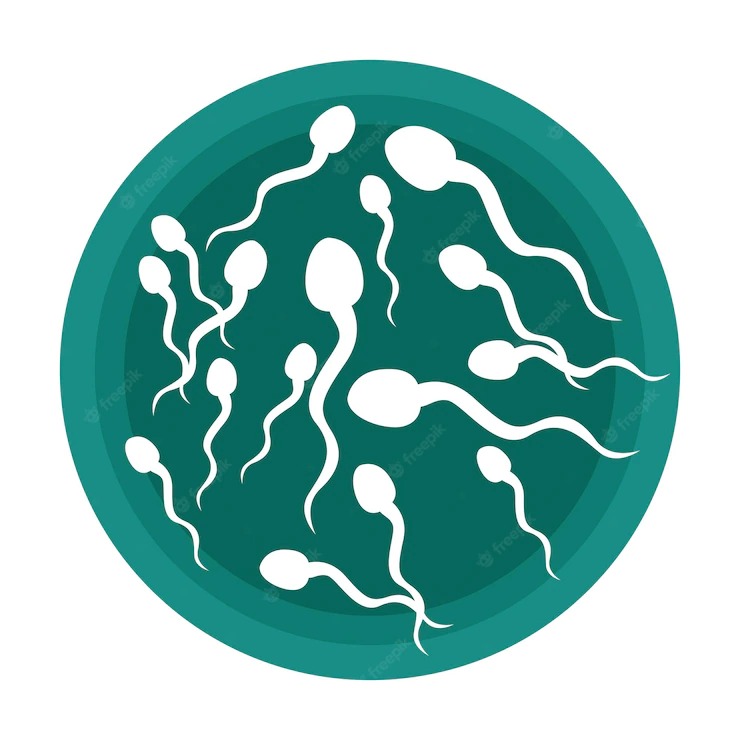Increase your Low Sperm Count

You may not think about Sperm Quality often. If you and your partner are looking to start or grow your family, you may think about the quality and number of swimmers that you have.
Although it takes only one sperm for an egg to be fertilized, the process can be difficult. Your chances of fertilizing an egg are greater if you have more sperm.
Defective Sperm accounts for around 30% of infertility. What does it really matter? How important is the sperm counts or fertility? Sometimes a man with a Lower Sperm Count is the father of a child. On the other hand, a man with a high sperm number is still infertile. But what is most important is whether they can fertilize a female partner egg. A low sperm count can be a sign that you have not been able to conceive after regular unprotected sexual relations with your partner.
Sperm and male gametes, which are the dominant components in semen, are dried thick fluid cells. They are the main component of male fertility factor, which is stored in testis.
To participate in egg fertilization and to develop an envoy, sperm must have enough energy to pass through the ovaries to reach the fallopian tubes.
Let’s look closer at the reasons you may have low sperm counts, how to find out, and what treatment options are available that can help increase your chances of getting pregnant.
Problems in sperm:-
- Every ejaculation that is required for fertility implanting requires sperm quality and quantity.
- Sperm count
- Sperm motility (motion of the semen)
- Semen structure is not affected by its size or shape.
- Temperature increase in the testes.
- Testicular injuries, drugs, and toxins can lead to a decline in sperm quality.
- Reduction in sperm production
- The distracting motion caused by sperm.
- The absence of sperm from semen.
- Inability of sperm to attach to eggs and penetrate them.
SYMPTOMS AND SIGNS:-
Low Sperm Counts are most commonly reflected in the inability to conceive. Other symptoms or signs may not be apparent. Sometimes, the underlying problem may include:
- A Disorder of Sexual Function, such as Low Sexual Desire and difficulty maintaining an erectile function.
- The inherent chromosomal anomaly.
- A lump, pain, swelling, or discomfort in the testicle.
- Hormonal imbalance.
- A decrease in facial hair or body hair.
- The flow of sperm is impeded by a deformed testicular artery.
How to find a doctor
If you have any of the following symptoms or are unable to conceive after unprotected intercourse over a prolonged period, consult a Sexologist.
- Premature or chronically premature ejaculation, ED or low sex desire.
- Former unsecured surgery on the sexual side or testis cancer.
- A lump, swelling, pain, or discomfort in the testicle region.
- Surgery of the groin, testicle and penis.
- Problems with the scrotum or male hernia

Causes:-
A major reason for Male Infertility is low sperm counts, also known as oligospermia. Low sperm count means that it falls below 15,000,000 sperm/milliliter (mL). However, the average is about 75 million sperm/mL.
Being overweight, suffering from trauma or having surgery in or around your testicles are all risk factors. You could also be at risk if you expose your testicles too much heat, or have other medical conditions.
There are many causes for Low Sperm Quality that can be categorized into three main categories: lifestyle, medical, and environmental.
Most cases do not show any signs of infertility. Most cases of infertility are not marked by difficulties with intercourse, erections and ejaculation. The appearance and quantity of the ejaculated sperm generally looks normal to the naked eye. To determine if a man has infertility, medical tests will be required.
An increase in temperature is bad for sperm. It can cause a drastic decrease in sperm quality, quantity, and can also alter the movement of the sperm.
- Hypogonadism is caused by hormone imbalance. This means that the testes produce very few hormones or none at all.
- An inherited genetic problem like Klinefelter syndrome
- An injury or illness can cause a structural problem, such as damage to the tubes that transport sperm.
- Prostatitis, gonorrhea or chlamydia are all forms of genital infections of the prostate gland.
- Previous unsuccessful surgery on the scrotum and surrounding areas.
- In the testicles, develop dilated veins.
- A gene abnormality on the Y chromosome can cause fertility problems in some men
- Varicocele refers to a swelling in the veins draining the testicle.
- Ejaculation. Semen enters the bladder at the tip or penis instead of during sexual intercourse.
- Tumors. Malignant and malignant tumors can directly affect the function of the male reproductive system.
Medical Causes
Your chances of having low sperm count may be increased by having testicular symptoms, injuries, or surgeries in the past, and genetic conditions such as Klinefelter Syndrome.
Treatments for cancer, such as chemotherapy, radiation or surgery, can also have an impact on hormone and sperm formation. The radiation of the testicles can directly damage the cells that make sperm. Radiation or brain surgery can also cause low sperm counts, since hormones in the brain stimulate sperm formation.
There are also other possible causes:
- The most common cause of male infertility is swelling in the veins draining the testicles. This condition is varicocele.
- Previous infections and sexually transmitted infected (STIs) can blockages, scarring or cause other damage to the reproductive organs.
- Issues with erections and ejaculation. For example, spinal injuries or diabetes may lead to erectile dysfunction or retrograde Ejaculation .
- Issues with the immune system
- Cystic fibrosis, or being a cystic carrier may prevent sperm from reaching the semen.
- Medical procedures, treatments, and medications for a variety of conditions including some cancers, antifungal, antibiotics, and ulcer drugs.
- Previous surgery on the male reproductive system such as bladder surgery, testicular surgery and surgery for undescended testicles. Inguinal hernia repair and, of course, a Vasectomy.
DIAGNOSIS:-
You should see your doctor if you have been having unprotected sexual relations for more than a year and you have not had your partner get pregnant. You can search for doctors in your local area using the Healthline FindCare tool. If you are experiencing symptoms such as trouble ejaculating or pain in your testicles, it is a good idea to make an appointment sooner.
A physical exam, medical history and semen analysis are all necessary to diagnose a condition.
We are aware that ejaculating into cups may not be something you would like to do. The analysis is not a different procedure from a blood or urine sample. So there’s no need to be embarrassed.
Semen analysis can help you get a diagnosis. Your sperm can also be counted under the microscope to check for morphology and motility. Because of the high variability in samples, your doctor may want to repeat the analysis.
A container will likely be given to you at the doctor’s office. The container will be given to you at your doctor’s office. If you choose to collect the specimen at home, you will be given instructions on how to take care of it until it is ready to be returned to the lab.
- Scrotal Ultrasound.
- Hormone Testing: Blood test to determine hormone levels in the blood.
- Perform a post-ejaculation urine analysis to determine if sperms are moving backward into your bladder or out of the penis during ejaculation.
- Genetic Testing: Check for healthy quantity and quality of Y-chromosomes
- Testicular Biopsy: This involves removing sperm from the scrotum with a needle. It is used to determine sperm production.
- Antisperm Antibody Tests: To test for antibodies that attack sperm, and to determine if they are able to function normally.

TREATMENT:-
Low sperm counts will vary depending on what the cause is. You can also modify your trying to conceive routine (TTC) in order to make it more likely that you get pregnant.
Medication
The treatment of infections in the reproductive tract is possible with medication. It is important to get treatment right away. If there is permanent tissue scarring, even a properly treated infection, the sperm count might not return to normal.
Counseling
A combination of counseling and medication may be helpful for issues related to sexual intercourse such as erectile dysfunction, premature Ejaculation or erectile dysfunction.
Hormonal treatment
Low sperm count can be caused by high testosterone levels or low levels of other hormones. It is possible to restore fertility by addressing these levels with medication and other treatments.
Lifestyle modifications
You can increase your chances of getting pregnant with low sperm counts by having more sexual intercourse and timing sex with .
To ensure that swimmers make it to the egg on time, you can have sex every day, or every other day, for example.
You should also avoid lubricants which may slow down sperm movement. Pre-Seed is a good option if you need lubrication. However, it should be used sparingly. Even Pre-Seed, contrary to popular belief, can cause a physical barrier if it is used too often.
Avoid activities that increase the temperature of your testicles such as hot tub dips or saunas. Avoid excessive alcohol and workout supplements, which can lower the quality of sperm.
Alternative medicine
A variety of vitamins and supplements have been tested, but antioxidants or vitamins might only have a limited effect if you have a real dietary deficit.
Before you start taking any supplements, consult your doctor. They may cause interactions with medications that you are already taking. Importantly, some workout supplements can harm your fertility.
On sale products
-
Ayurvedic Shilajit Capsule for Stamina & Power (Pack of 30) | Shilajit for Womens & Men
Price range: ₹599.00 through ₹999.00 -
Buy Ashwa Power Capsules (Pack for 30 CAP) | Sex Power Capsules
Price range: ₹699.00 through ₹999.00 -
Buy Ashwa Power Capsules For Men (Pack of 60 CAP) | Sex Power Capsules
Original price was: ₹4,000.00.₹999.00Current price is: ₹999.00.
Give it some time
You should note that lifestyle and treatment changes can delay the impact on your sperm count. Sperm production takes up to two to three months. You may not notice an average increase in your sperm count for three months.
Healthy Food to Increase Sperm Count
Avoid using anabolic steroids, testosterone or any other over-the-counter boosters of testosterone. This can lead to infertility.
Healthy eating habits can help reduce your chances of losing sperm. Some ingredients can be increased by a Sexologist:
- Zinc: It is essential for sperm to swim straight and build up 90% of the sperm tails. Zinc is also essential for hormone health. Oysters can help boost your levels.
- Selenium: Antioxidant selenium protects against the high temperature.
- Vitamin C: Another powerful antioxidant. Red capsicum has many sources.
- Essential Fatty Acids and vegetables
These are some of the common arms we use to provide Low Sperm Count Treatment.
- Intracytoplasmic Sperm Injection involves injecting one sperm directly into an eggs to fertilize it. The embryo is then transferred to a female’s stomach.
- If you have low levels of gonadotropin hormones, you must take gonadotrophic (increase your sperm count), drugs.
- Donor insemination is the use of anonymous sperm to fertilize.
















